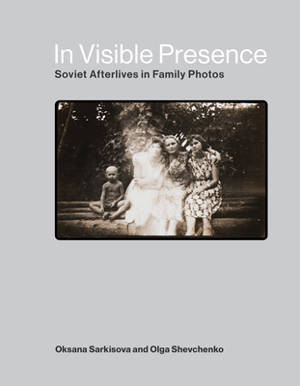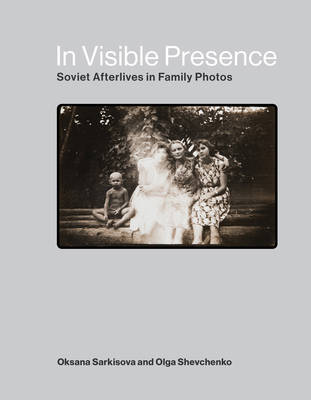
Bedankt voor het vertrouwen het afgelopen jaar! Om jou te bedanken bieden we GRATIS verzending (in België) aan op alles gedurende de hele maand januari.
- Afhalen na 1 uur in een winkel met voorraad
- Gratis thuislevering in België
- Ruim aanbod met 7 miljoen producten
Bedankt voor het vertrouwen het afgelopen jaar! Om jou te bedanken bieden we GRATIS verzending (in België) aan op alles gedurende de hele maand januari.
- Afhalen na 1 uur in een winkel met voorraad
- Gratis thuislevering in België
- Ruim aanbod met 7 miljoen producten
Zoeken
In Visible Presence
Soviet Afterlives in Family Photos
Oksana Sarkisova, Olga Shevchenko
Hardcover | Engels
€ 62,95
+ 125 punten
Omschrijving
An absorbing exploration of Soviet-era family photographs that demonstrates the singular power of the photographic image to command attention, resist closure, and complicate the meaning of the past. A faded image of a family gathered at a festively served dinner table, raising their glasses in unison. A group of small children, sitting in orderly rows, with stuffed toys at their feet and a portrait of Lenin looming over their heads. A pensive older woman against a snowy landscape, her gaze directed lovingly at a tombstone. These are a few of the evocative images in In Visible Presence by Oksana Sarkisova and Olga Shevchenko, an exquisitely researched book that brings together photographs from Soviet-era family photo archives and investigates their afterlives in Russia. In Visible Presence explores the photographic images' singular power to capture a fleeting moment by approaching them as points of contestation and possibility. Drawing on over a decade of fieldwork and interviews, as well as internet ethnography, media analysis, and case studies, In Visible Presence offers a rich account of the role of family photography in creating communities of affect, enabling nostalgic longings, and processing memories of suffering, violence, and hardship. Together these photos evoke youthful aspirations, dashed hopes, and moral compromises, as well as the long legacy of silence that was passed down from grandparents to parents to children. With more than 250 black and white photos, In Visible Presence is an astonishing journey into domestic photography, family memory, and the ongoing debate over the meaning of the Soviet past that is as timely and powerful today as it has ever been.
Specificaties
Betrokkenen
- Auteur(s):
- Uitgeverij:
Inhoud
- Aantal bladzijden:
- 488
- Taal:
- Engels
Eigenschappen
- Productcode (EAN):
- 9780262048279
- Verschijningsdatum:
- 3/10/2023
- Uitvoering:
- Hardcover
- Formaat:
- Genaaid
- Afmetingen:
- 182 mm x 236 mm
- Gewicht:
- 1202 g

Alleen bij Standaard Boekhandel
+ 125 punten op je klantenkaart van Standaard Boekhandel
Beoordelingen
We publiceren alleen reviews die voldoen aan de voorwaarden voor reviews. Bekijk onze voorwaarden voor reviews.












